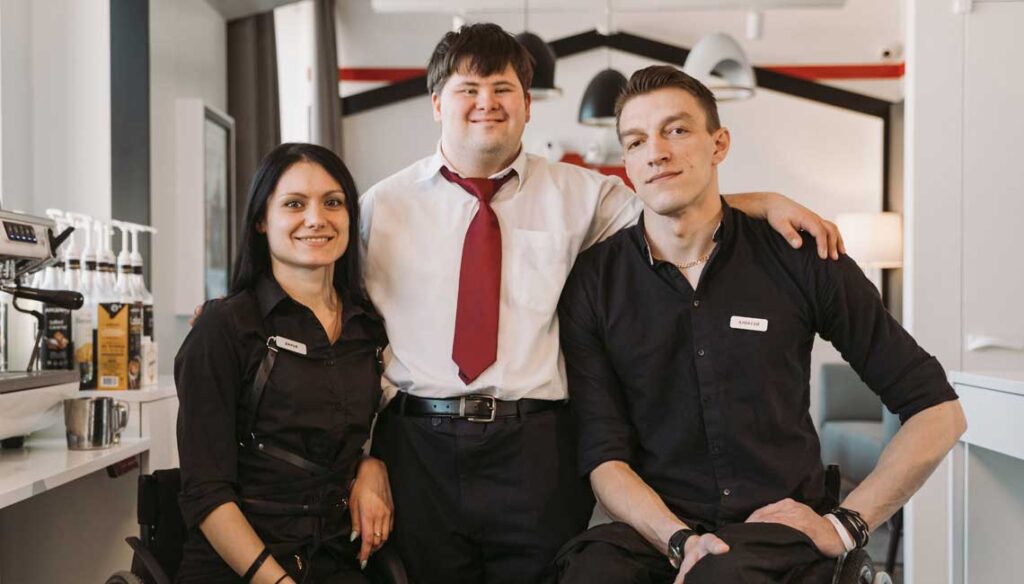
Governments everywhere can no longer overlook the hundreds of millions of people with disabilities who are denied access to health, rehabilitation, support, education, and employment—and never get the chance to shine.
Stephen Hawking
Most of the people in the world are going to age. And it is good news to spend more time on the planet, but, being so, we will also have to face natural challenges such as loss of mobility, physical strength, memory, sight, hearing, as well as the appearance of diseases that, at some point, they will be disabling. If these conditions were not severe, we could continue to be productive people and bring benefits to society, but no one knows how many opportunities there will be.
Many elderly people have a disability acquired due to serious illnesses or accidents, others already had one from birth. These social groups are diverse in age and characteristics. In many cases, the disabilities are not visible, as occurs with epilepsy, depression or chronic diseases, and psycho-social, intellectual and learning disabilities. Together, all these people number about a billion worldwide.
Being a person with a disability is something that becomes a condition of life: it never goes away. However, civil rights activists propose that they not be seen as sick people since, in general, they are capable of working and having fun, to the extent of their own abilities and talents, but, above all, they ask that they not be judged for their appearance and less discriminated against.
There are amazing examples, such as the Paralympic Games, which have been held every six years since 1988. Their mission is to promote the right of all people to practice a sport without suffering discrimination. The impact of these games has been reflected in transformations in cities and buildings to offer better accessibility.
It is worth noting the participation of Mexican Paralympic athletes, who won 22 medals at the Tokyo 2020 Games, while Olympians from the same country only got four.
Despite these outstanding examples, the association Yo también affirms that accessibility in many cities is still insufficient, and inclusion is essential for respect for human rights. They also consider that the population in general regards the possibilities of social participation of people with disabilities with prejudices.
The organization Incluyeme affirms that three out of four people with disabilities are unemployed and, consequently, without resources. This organization works in twelve countries of the Americas with hundreds of companies, and its actions help raise the self-esteem of the people they support. They believe that economic, legal and social barriers must be overcome to achieve labor inclusion, and that there must be contracts based on skills and experience, not to mention physical characteristics, and thus avoid discrimination based on condition or appearance.
The American Association of People with Disabilities or American Association of People with Disabilities, AAPD, has also worked to influence the transformation of civil rights laws in the United States. They have drawn public attention to aspects such as voting rights, to promote government programs and generate resources such as support for inclusive education, which can provide subsistence tools and obtain financing. They also affirm that poverty is the twin sister of disability.
People with disabilities in the Americas and around the world, by feeling part of the community, without any exclusion and access to the same spaces —especially work spaces to achieve self-sufficiency— improve their physical and mental health.
An inspiring example of how recognition of these human rights is achieved can be found in the film Crip Camp (2020), directed by James LeBrecht, where he tells his own story and that of the famous activist Judy Heumann, who since the 1960s have promoted the leadership and participation of people with disabilities, as well as their right to a productive, independent and happy life.
In 1992, the UN designated December 3 as the International Day of Persons with Disabilities to highlight the importance of raising the quality of life of people with this condition and, this year, they offer an important fact: 70% of the people with disabilities of economically active age are unemployed.
At Del Pueblo Funeral Home we believe that as a society we must strive for true inclusion. Let us remember that we could all come to face some type of disability, and that is not why we should remain in confinement and without autonomy. We share these ideals and remind you that we are here to make the most difficult moments easy.
